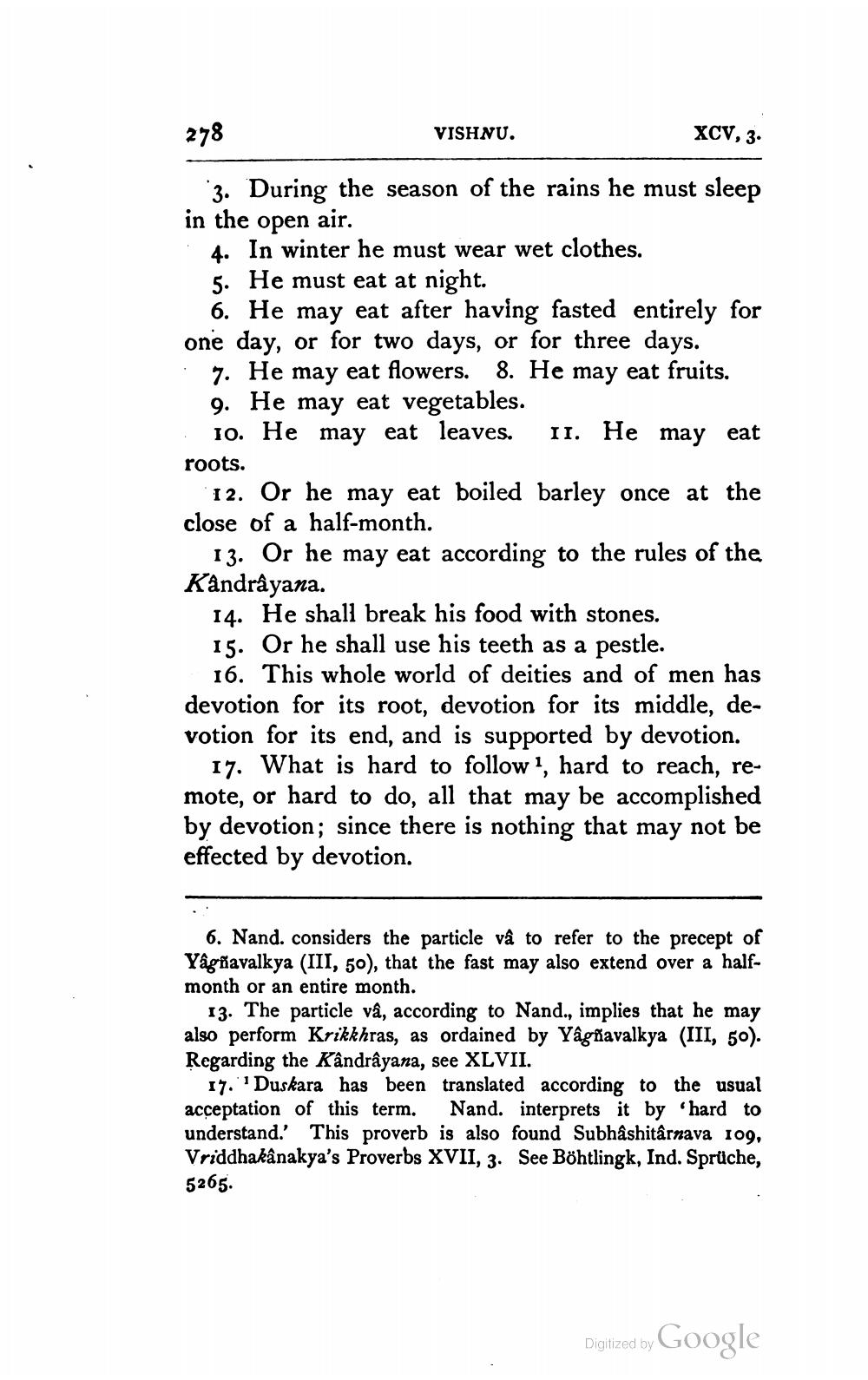________________
278
VISHNU.
XCV, 3.
3. During the season of the rains he must sleep in the open air.
4. In winter he must wear wet clothes. 5. He must eat at night.
6. He may eat after having fasted entirely for one day, or for two days, or for three days. : 7. He may eat flowers. 8. He may eat fruits.
9. He may eat vegetables. · 10. He may eat leaves. 11. He may eat roots.
12. Or he may eat boiled barley once at the close of a half-month.
13. Or he may eat according to the rules of the Kändrayana.
14. He shall break his food with stones. 15. Or he shall use his teeth as a pestle.
16. This whole world of deities and of men has devotion for its root, devotion for its middle, devotion for its end, and is supported by devotion.
17. What is hard to follow ?, hard to reach, remote, or hard to do, all that may be accomplished by devotion; since there is nothing that may not be effected by devotion.
6. Nand. considers the particle vâ to refer to the precept of Yâgñavalkya (III, 50), that the fast may also extend over a halfmonth or an entire month.
13. The particle vâ, according to Nand., implies that he may also perform Krikkhras, as ordained by Yâgñavalkya (III, 50). Regarding the Kândrayana, see XLVII.
17. Duskara has been translated according to the usual acceptation of this term. Nand. interprets it by 'hard to understand.' This proverb is also found Subhâshitârnava 109, Vriddhakânakya's Proverbs XVII, 3. See Böhtlingk, Ind. Sprüche, 5265.
Digitized by
Digitized by Google




